Jan
4
2010
or Collision II
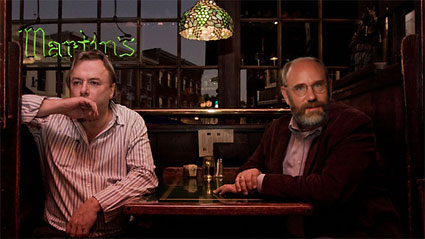
In the movie Collision, Christopher Hitchens relies a lot on the idea of a moral consensus, the idea that humanity has an innate sense of what’s right and what’s wrong and that we all agree on the basics. Is there any merit in this assumption? Or is Hitchens assuming that the benefits of Christianity are the result of human reason? Peter Leithart argues that Calvin, as an heir of 1200 years of Christendom, made exactly this mistake.
(I present below just the head and tail of Dr Leithart’s argument. I highly recommend getting a hold of the essay and reading his full argument and evidences.)
Excerpts from Did Plato Read Moses?
Peter Leithart on Middle Grace and Moral Consensus
The Bible presents a bleak view of the moral potential of the natural man. In this respect it seems to fly in the face of the facts. What are we to make of the empirical phenomenon of the “good pagan”?
Continue reading
10 comments | tags: C. S. Lewis, Calvin, Christopher Hitchens, Church History, Peter Leithart | posted in Apologetics, Biblical Theology, Ethics
Dec
10
2009
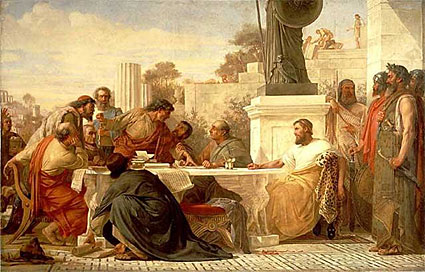
Ending the False Dichotomy of Blood and Spirit
NOTE: THIS POST HAS BEEN REMIXED AND INCLUDED IN GOD’S KITCHEN.
The Old Testament is a bloody book. Beginning with Adam’s “dissection” to build Eve and the animals the Lord made into tunics, it culminates in Revelation with the massacre of saints under Herod/Nero (Revelation 14) and then the massacre of Jews under Vespasian and Titus.
Continue reading
2 comments | tags: Amillennialism, Church History, Dispensationalism, Jewish war, John Piper, Martyrdom, Nero, Postmillennialism, Revelation | posted in Biblical Theology, Quotes, The Last Days
Sep
30
2009
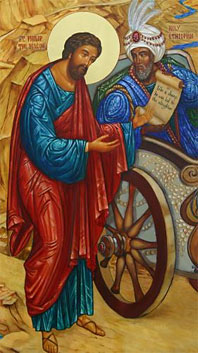
Roman Catholics like to remind us Protestants that the Reformation’s sola scriptura has caused unmitigated doctrinal division. Interpretation must be done in community by people who know what they are talking about.
In his talk this week (see previous post Heliocentric Preaching), Doug Wilson humourously described the “just me and my Bible” people who fail to realise that the Bible itself calls us to theology in community. We all need teachers, and the Bible is written the way it is so we are forced into some sort of discipleship. Left alone with our Bibles, we are all Ethiopian eunuchs.
So regarding sola scriptura and interpretive authority, I kind of agree with the Catholics! It has always been something done by the church community.[1]
H O W E V E R . . .
Continue reading
1 comment | tags: AD70, Atonement, Church History, Compromise, Doug Wilson, Ecclesiology, Reformation, Reformers, Roman Catholicism, Tim Nichols | posted in Against Hyperpreterism, Christian Life, The Last Days
Sep
23
2009
or Suckers for Systems
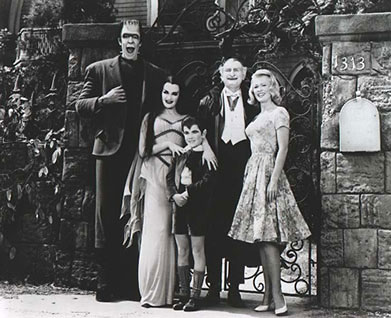
God chooses certain men to do great works. Their work is duplicated and multiplied in the institutions they found. When these men are gone, those who remain tend to rely on systems. The machine must be maintained for pride’s sake, regardless of whether it is being used by God or not. This violates two basic biblical principles.
Continue reading
Comments Off | tags: Church Growth, Church History, Discipleship, Ecclesiology, James Jordan, Postmillennialism, Watchman Nee | posted in Christian Life, Quotes
Aug
3
2009

or Judaism is a Testimony to the End of the World
There is a patisserie in the Blue Mountains that bakes traditional German sourdoughs. Originally the mother culture for their sourdoughs was brought to Australia in a phial by the owner’s father from a bakery near Stutgart. The culture is 500 years old and has been given the name, “Corey”. This is a fantastic picture of what leaven symbolises in the Bible. It is not a symbol of sin. It is a symbol of historic continuity.
Continue reading
Comments Off | tags: Church History, Circumcision, Communion, Gary North, Passover, Pharaoh, Postmillennialism, Roman Catholicism | posted in Biblical Theology, Christian Life, Quotes, The Last Days
Apr
30
2009
Doctrines had to be defined within strict limits, even in order that man might enjoy general human liberties. The church had to be careful, if only that the world might be careless.
This is the thrilling romance of Orthodoxy. People have fallen into a foolish habit of speaking of orthodoxy as something heavy, humdrum, and safe. There never was anything so perilous or so exciting as orthodoxy. It was sanity: and to be sane is more dramatic than to be mad. It was the equilibrium of a man behind madly rushing horses seeming to stoop this way and to sway that yet in every attitude having the grace of statuary and the accuracy of arithmetic.
Continue reading
2 comments | tags: Arianism, Calvinism, Chesterton, Church History, Heresy | posted in Quotes
Apr
16
2009
This event would explain the massive discontinuity between the apostles and the church fathers. James Jordan writes:
The true Fathers of the Church are Noah, Abraham, Joseph, Moses, Jeremiah, Jesus, Paul, Peter, and John, and the other Fathers in the Bible. These men, under the guidance of the Holy Spirit, created the apostolic deposit from which the Church always grows. The men who came after them, in the first and second and third centuries, are not Church Fathers but Church Babies. We may think that because these men lived right after the apostles, they must have known a lot. Remarkably, this is not the case. Anyone who reads the Bible, climaxing in the New Testament, and then turns to the “apostolic fathers” of the second century, is amazed at how little these men seem to have known…
Continue reading
Comments Off | tags: AD70, Church Fathers, Church History, Firstfruits, James Jordan, Resurrection | posted in Against Hyperpreterism, Biblical Theology, The Last Days
Apr
15
2009
(A post from my friend Matthew’s blog. I haven’t read this book.)
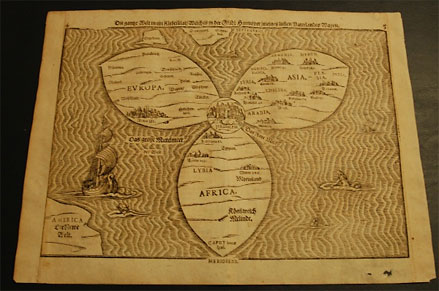
I recently read The Lost History of Christianity – The Thousand-Year Golden Age of the Church in the Middle East, Africa and Asia- and How It Died by Philip Jenkins (2008). It is a magisterial introduction to a rich but largely forgotten history. The lands Jenkins has in mind were well and truly the centre of the Christian world for well over a thousand years, even after the Muslim invasion of these lands from the seventh century.
Continue reading
Comments Off | tags: China, Church Growth, Church History | posted in Quotes
Apr
11
2009
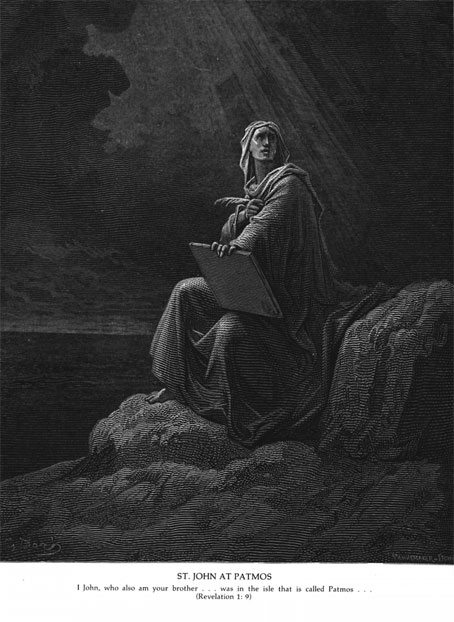
There are conflicting traditions concerning John. A widely held opinion is that he was banished to Patmos by the Emperor Domitian who reigned from AD 81 through 96. If so, this makes preterism a paper tiger.
Continue reading
Comments Off | tags: Bible history, Church History, David Chilton, Ezekiel, John, Kenneth Gentry, Literary Structure, Preterism | posted in The Last Days
Apr
10
2009
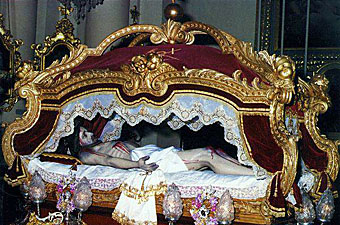
“Catholics do not worship idols, it would be a mortal sin if they did.”
Apparently there is a difference between veneration and worship? That is their argument.
I agree that the common argument against it is a bit weak, but James Jordan writes:
“This commandment is often misinterpreted as stating that no picture of God can be made. This is not what it says. What is says is that no image of anything can be set up as an avenue of worship to God and the court of heaven… Thus, the idea is not that of a “graven” image as opposed to a “molten” image or a “painted” image. The idea is that of a manmade graven object versus the God-made graven Word. The opposition is between God’s content-filled graven Words and man’s silentgraven images. The opposition of God’s verbal covenant and man’s graven images is set out in greater detail in Deuteronomy 4:15-31.”
Continue reading
Comments Off | tags: Church History, James Jordan, Roman Catholicism, Temple, Ten Commandments | posted in Biblical Theology, Ethics, The Restoration Era

































